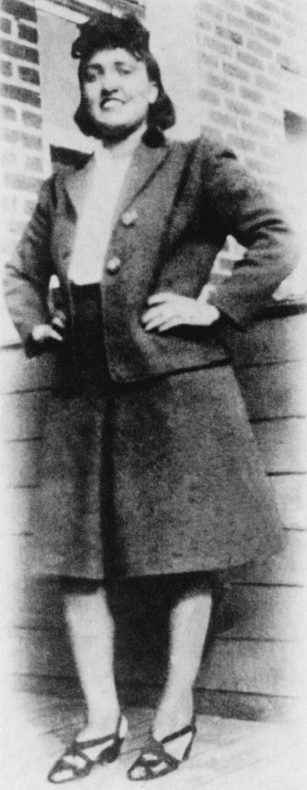
This week, as protesters have taken to the streets to demand justice for George Floyd, Breonna Taylor, and countless other Black people murdered at the hands of the police, local bail funds have been inundated with donations. One of my favorite tweets calling for people to take action:
An earlier version of that sentiment appealed to the science nerds out there:
If you don’t know the story of HeLa cells, here’s the cliffs notes version, detailed in Rebecca Skloot’s excellent book The Immortal Life of Henrietta Lacks: in 1951, Henrietta Lacks, a black woman, went to the Johns Hopkins medical center for cervical cancer treatment. Researchers took a biopsy from a tumor and discovered that her cells were unusually hearty, so they began culturing those cells and using them in medical experiments.
Soon, they sent and sold cells to other scientists, and now HeLa cells are among the most popular cell lines used by researchers. Lacks’s cells were used to test the first polio vaccine, showed scientists that humans have 23 chromosomal pairs and not 24, and have even been sent to space. Science owes a great deal to Henrietta Lacks and her family. But Lacks’s family wasn’t ever told their relative’s cells were being used, nor have they seen any money from that exploitation.
What happened to Lacks shows the many ways in which our society is built on Black people’s bodies and labor, and how this history often remains invisible because powerful people and institutions have a vested interest in ignoring it. To turn away from this obscures the truths science aims to uncover, and yet all too often, science writers or scientists shy away from discussing race and politics in their work. But it’s not possible to compartmentalize race and politics; they are inherently a part of science, and always have been. Any work that ignores anti-Blackness in our society and, especially, in science, is lacking. (And that’s aside from the morality of it all; as a Huffington Post article once put it, “I don’t know how to explain to you that you should care about other people.”)
What’s happening in the US right now only underscores how deeply race and politics are intertwined with science and nature. This pandemic disproportionately kills Black and brown people. Public health experts are speaking out about white supremacy as a public health issue that shortens Black people’s lives. And Christian Cooper’s encounter with a hysterical white woman who called the cops on him exposed how Black birders may be treated while engaging with nature (and led to Black Birders Week). Black lives matter, and it’s clear we need to keep working at building systems in science and nature that actually reflect that.
So, to echo @undocusci: if you’ve ever worked in a lab that uses HeLa cells, donate — though maybe consider donating to a community program instead, since many bail funds say they’re all set. Or even if you haven’t worked with HeLa cells, donate. There’s plenty else to do, too: learn, volunteer, call, amplify Black voices (for starters, some scientists and naturalists: Corina Newsome, Danielle Lee, Raychelle Burks, Tressie McMillan Cottom, #BlackBirdersWeek, @BlackAFinSTEM). And given the title of this post (a Lizzo lyric), I’m off to put my money where my mouth is.
Image: Oregon State University’s Flickr, courtesy of Crown Books
My total random choice I picked up this book at the library a few years ago. I absolutely was amazed by this account, and I could not believe this actually happened. It was fascinating and enlightening all at once.